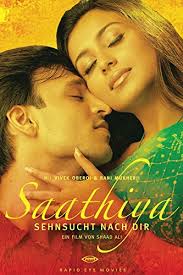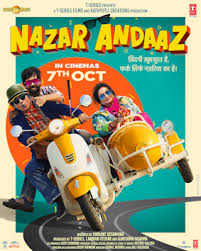When political power becomes a family legacy, it’s bound to unravel a complex web of loyalties, betrayal, and moral dilemmas. This film stars Sanjay, Ali, Jackie, and Manisha, set in the heart of Uttar Pradesh, where politics and power struggles form the backdrop of a gritty political drama. Directed by Deva Katta, the film explores the genre of intense political thriller with themes of family, loyalty, and power, set against a traditional Indian political landscape.
The plot centers around Baldev Pratap Singh (played by Sanjay), a powerful politician with a deep-rooted political empire. His family, torn between personal ambition and loyalty to the patriarch, becomes embroiled in a fierce internal conflict as they navigate the murky world of politics. Baldev’s adopted son Ayush (played by Ali), the ever-loyal and disciplined heir, finds himself in constant conflict with his younger brother Vivaan (played by Satyajeet), whose reckless behavior threatens to tear the family apart. The story intricately weaves their personal vendettas with larger political aspirations, and while the narrative spirals into moral ambiguity, it refrains from delivering clear-cut answers. Instead, it explores the grey areas of ethics, power, and personal ambition, keeping the audience hooked throughout.
One of the most powerful aspects of the film is its acting, led by Sanjay, who once again proves his mettle with a brooding and layered performance as Baldev Pratap Singh. His portrayal of a seasoned political leader navigating both family and political storms is commendable. Sanjay brings gravitas to his character, making Baldev both a respected figure and a vulnerable father. Ali, in the role of the conflicted son Ayush, is equally compelling. His portrayal of a son caught between duty and conscience is both empathetic and intense. A standout scene where he confronts his father, torn between familial loyalty and his moral compass, is a testimony to his acting range. Jackie as Baldev’s close associate and Manisha as the matriarch of the family also deliver nuanced performances, providing solid support to the lead cast. The chemistry between the ensemble cast creates palpable tension throughout the film, and the volatile dynamics of this power-hungry family are convincingly portrayed.
Deva Katta’s direction shines in the way he orchestrates the film’s tense atmosphere, balancing the intense family drama with the larger political narrative. The pacing of the film is steady, although at times the screenplay feels slightly stretched, especially in the second half. The film successfully captures the emotional weight of power and its consequences on relationships, with Deva Katta allowing his characters the space to develop fully. His portrayal of power dynamics is hard-hitting and raw, and the way he tackles moral conflicts is commendable. The editing is crisp in most parts, though certain sequences could have been tightened to maintain a more consistent momentum.
The music, composed by Ankit Tiwari and Farhad Samji, works well in building the film’s atmosphere. The songs, although limited, serve as breaks between the heavy emotional and political turmoil unfolding on screen. “Dil Bevda” and “Haji Ali” stand out as songs that complement the film’s tone, with the latter especially adding depth to the spiritual and moral undertones of the narrative. The background score amplifies the film’s dramatic tension, especially in pivotal moments, enhancing the impact of key scenes without being overbearing.
Cinematography by Ravi Yadav is another strong suit of the film. The way he captures the political rallies, family gatherings, and intense confrontations adds an additional layer to the storytelling. The dark, shadowy shots of Uttar Pradesh’s political underbelly are visually gripping and effectively set the mood of the film. The lighting and framing of certain scenes, such as the intense dialogues between Sanjay and Ali, are particularly well-executed, highlighting the strained emotions and power dynamics. Special effects are minimal but fitting for the narrative, used more to enhance the setting rather than distract from the core storyline.
The film’s costume design and set production deserve a mention for how they seamlessly blend with the film’s political narrative. The characters, particularly Baldev, are dressed in traditional political garb, which underscores their societal roles and adds authenticity to the setting. The grandeur of the Singh household juxtaposed with the gritty streets of Uttar Pradesh is a striking visual contrast that emphasizes the film’s central theme of power struggles. The attention to detail in these aspects elevates the overall immersive experience.
Themes of loyalty, ambition, and the corrupting nature of power are central to the narrative, and the film doesn’t shy away from exploring the moral grey zones within its characters. It raises difficult questions about the choices we make in the pursuit of power, but leaves them open-ended, allowing the audience to ponder the consequences. This exploration of ethics and politics, combined with the personal family drama, adds layers of depth to the film that go beyond the typical Bollywood political drama.
As a whole, the film is a well-crafted political drama with strong performances and an emotionally engaging plot. While the pacing could have been tighter, particularly in the second half, the film keeps the audience invested in the fate of its characters. The moral questions it raises, coupled with intense familial conflict, make it a gripping watch for anyone interested in power dynamics and political narratives. Fans of the genre will appreciate its blend of personal and political storytelling, and the powerful performances, particularly by Sanjay and Ali, are reason enough to give this film a watch.
It’s a film that will resonate with those who enjoy morally complex characters and stories where no one is completely right or wrong. The themes of family loyalty and the cost of political ambition are handled with care, making it more than just another political thriller. Recommended for viewers who appreciate character-driven stories with a heavy dose of political intrigue.







